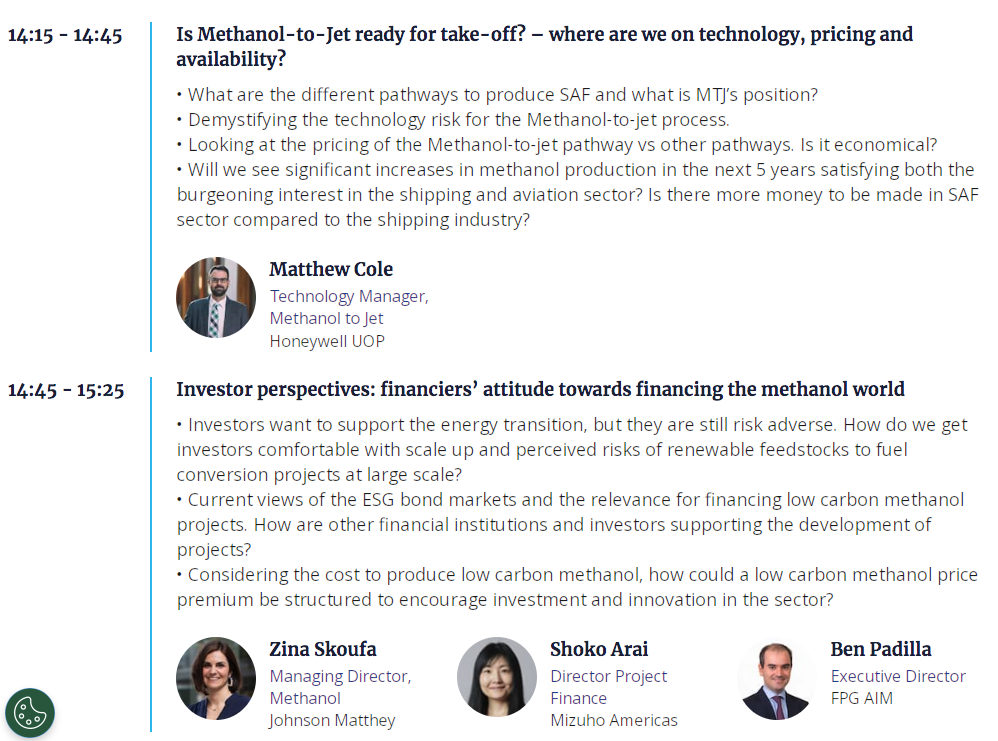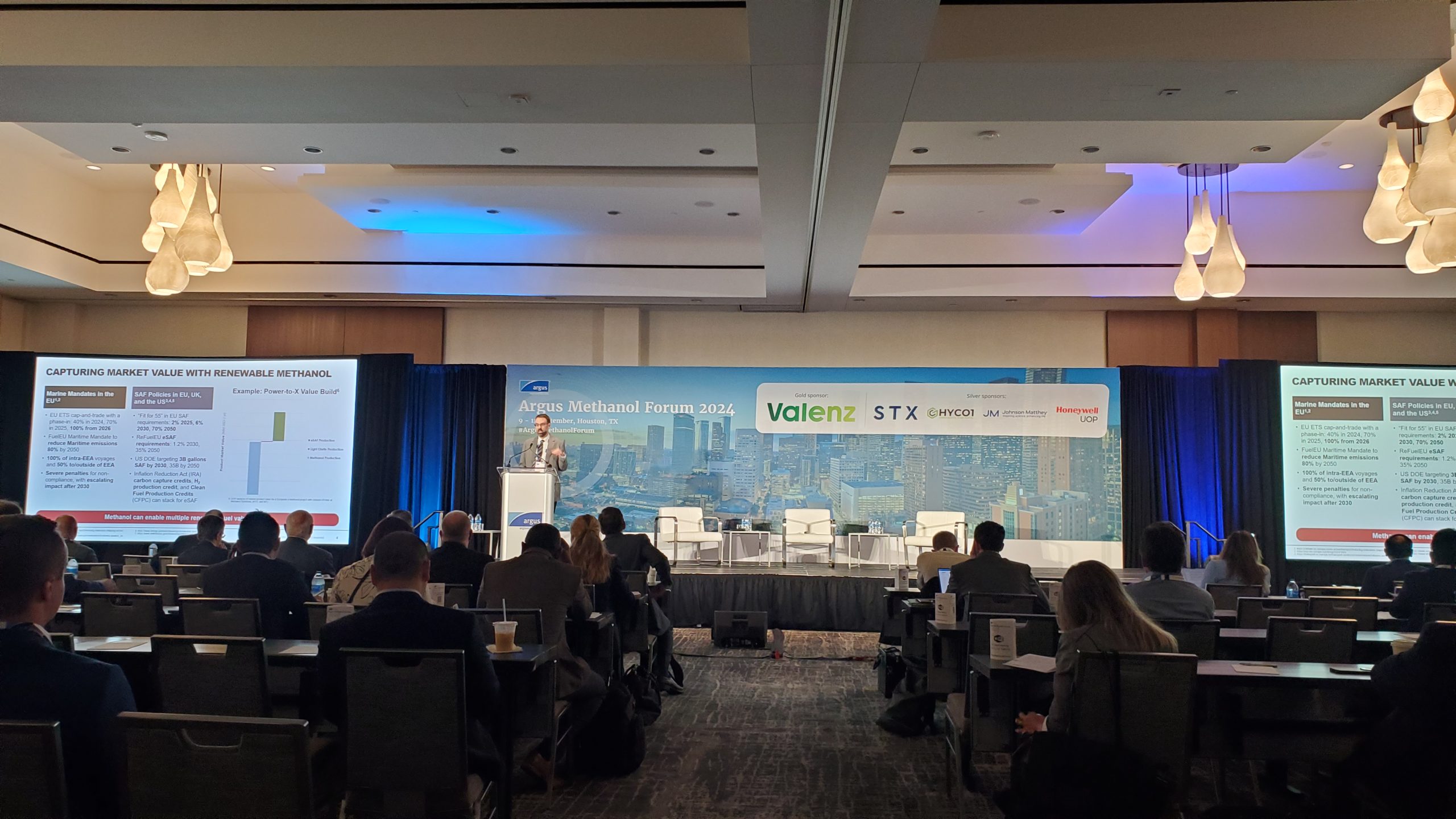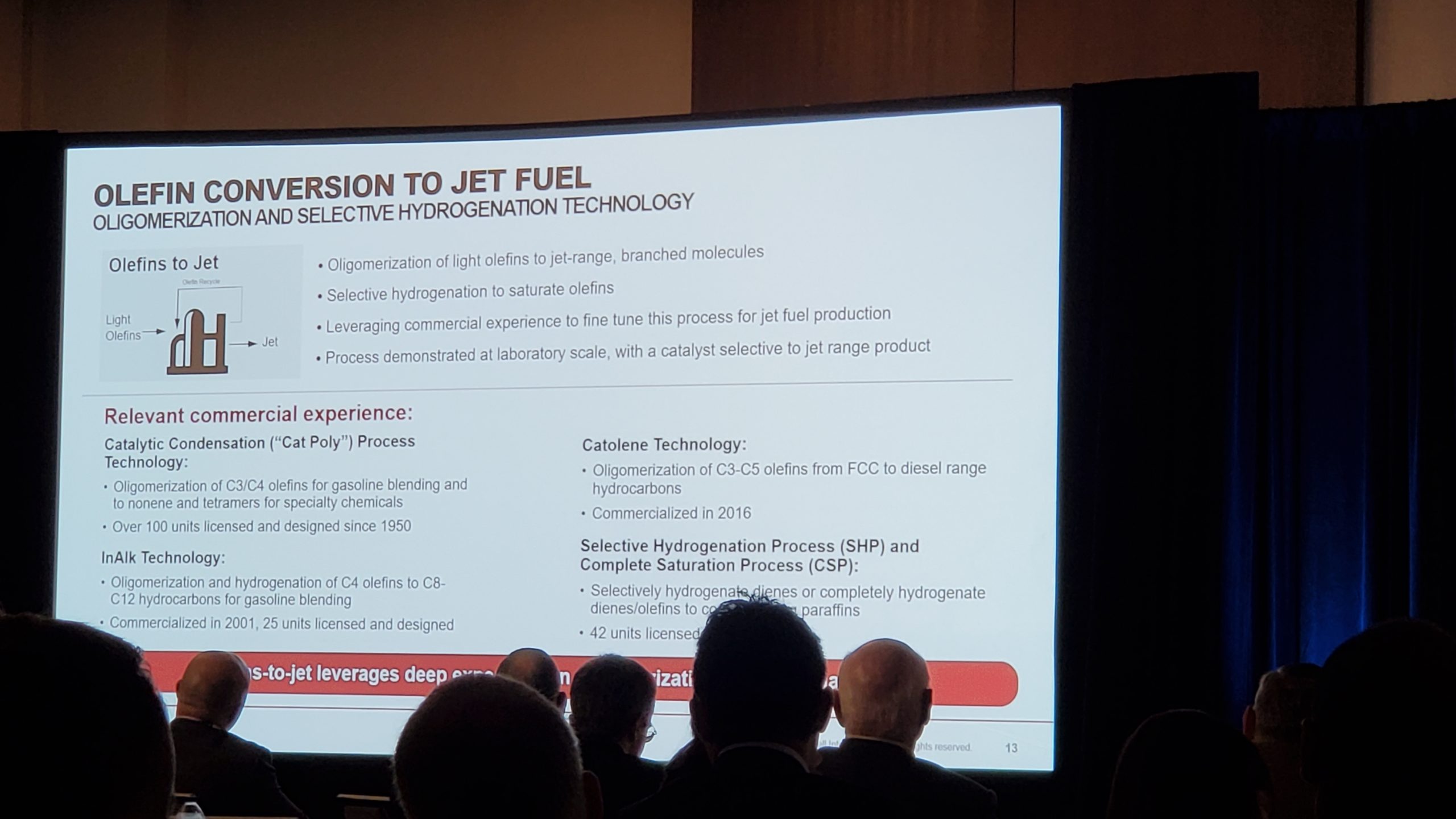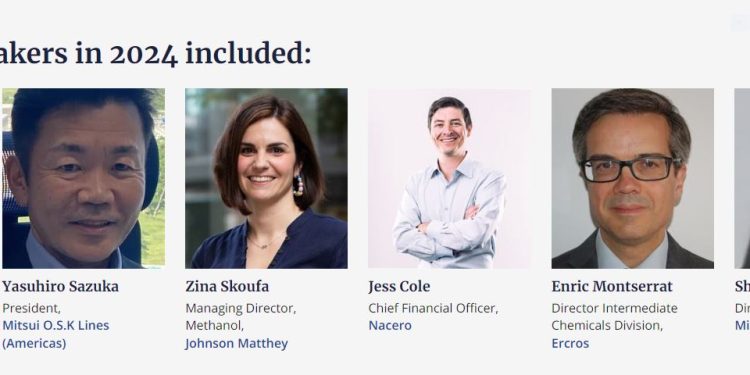As the world embraces decarbonization and seeks sustainable solutions in energy production, methanol is emerging as a critical player in this transition. In preparation for the upcoming contracting season, the Argus Methanol Forum made a triumphant return to Houston, Texas, from September 9-11, 2024. Bringing together over 200 key global industry participants, the three-day event offered an unparalleled opportunity for networking, knowledge sharing, and insight into the evolving role of methanol in the green energy landscape.

The forum’s agenda was packed with expert presentations, panel discussions, and technology showcases, all focused on the pivotal role of methanol in the energy transition. Industry leaders and stakeholders explored cutting-edge topics, including advancements in methanol production, new uses in sustainable aviation fuel (SAF), and the growing relevance of financing low-carbon projects.
Listen to Panel Discussion with Zina Skoufa, Shoko Arai, and Ben Padilla

Methanol’s Role in the Energy Transition
Methanol is being recognized as a versatile fuel and chemical feedstock that can support the global push towards net-zero carbon emissions. As the world shifts to greener alternatives, methanol offers a range of applications, from clean energy production to carbon capture technologies. The Argus Methanol Forum highlighted the vast potential of methanol, particularly in its ability to replace more carbon-intensive fuels and contribute to sustainable aviation and maritime industries.
Among the most anticipated discussions at the forum were those centered on the production of low-cost methanol and its conversion into sustainable aviation fuel (SAF), both critical areas in achieving broader decarbonization goals.
Key Discussions and Industry Insights
Several expert-led presentations and panels delved into the technological innovations that are making methanol production more efficient, affordable, and environmentally friendly. The topics ranged from “Pathways to Product SAF” to “How to Produce Low-Cost Methanol,” providing insights into the future of methanol as a competitive, low-emission fuel.
One of the standout presentations came from Matthew Cole, Technology Manager for Honeywell UOP, who spoke extensively on the methanol-to-jet (MTJ) process. This innovative technology has the potential to revolutionize the aviation industry by converting methanol into sustainable aviation fuel, thus reducing reliance on traditional jet fuels that have a heavy carbon footprint. This also including using methanol for shipping industry as well.
Listen to the Audio of Matthew Cole presentation:
Cole’s presentation underscored the ongoing advancements in the methanol-to-jet process, detailing how it could help airlines meet increasingly stringent environmental regulations while maintaining operational efficiency.

Financing Low-Carbon Methanol Projects
In addition to the technical advancements in methanol production, the forum also focused on the financial mechanisms that will be crucial in driving the industry forward. One notable panel discussion addressed the role of Environmental, Social, and Governance (ESG) bond markets in financing low-carbon methanol projects.
As ESG factors become central to investment decisions, financing low-carbon projects is seen as vital for supporting the global shift to cleaner energy sources. Panelists discussed how ESG-linked financing can provide the capital needed to scale up methanol production while meeting sustainability targets. This conversation highlighted the importance of collaboration between industries, financial institutions, and regulatory bodies to unlock the necessary funds for green projects, positioning methanol as a crucial component of the energy transition.

Looking Ahead
The Argus Methanol Forum 2024 demonstrated that methanol is poised to play a transformative role in the future of global energy markets. As industries continue to explore ways to reduce their carbon footprint, methanol’s versatility as both a fuel and feedstock makes it a strong candidate for supporting decarbonization across multiple sectors.
Key Themes on the Agenda in 2024:
The application of CCUS for reducing carbon emissions in methanol plants
- Hear more on what feedstock products exist for lowering the carbon intensity of methanol, and if adding CCUS to existing methanol plants reduce the carbon intensity enough to the point where it is competing with green methanol from a cost and emission standpoint. Also, discover what other technological innovations, including upstream and downstream technologies are available.
Low carbon methanol use in the chemical and plastics industry
- With European mandates and other global regulations such as RED III, how will the landscape of low-carbon methanol for chemical applications develop and will there be an increase in regulatory requirements for the chemical industry to decarbonise in North America? How will this impact methanol derivative production and how will chemical and plastic companies increase low-carbon inputs going into their supply chain? Discover which low-carbon methanol products are most likely to succeed.
Building a low carbon methanol pipeline and mobilising methanol in new ways
- Hear from key players across the supply chain on how they are working together on building out the infrastructure for low carbon methanol in order to distribute it efficiently across the globe. What regions are seeing the most development for low carbon methanol projects and how can the industry ensure it is available to customers where and when they need it?
Financiers’ attitude towards financing the methanol world
- Despite investors’ desires to back the energy transition, they still remain risk adverse. How do we get investors comfortable with scale up and perceived risks of renewable feedstocks to fuel conversion projects at large scale? How could a low carbon methanol price premium be structured to encourage investment and innovation in the sector?






